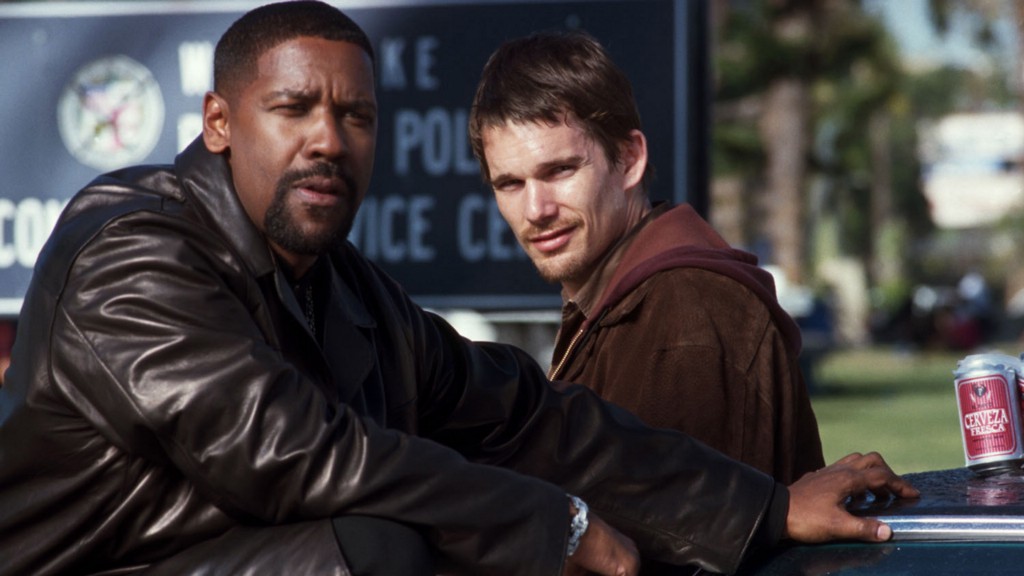Job of the Day: Police Officer
These days, who becomes a cop?

Growing up in DC, my father taught me not to trust the police. I didn’t really get why when I was younger, because cops seemed kindly in movies like Mary Poppins, for example, and on TV shows like “Picket Fences,” and they sometimes smiled at me on the street, but my father had an aversion to people in uniform that I accepted, even if I couldn’t understand.
Then my cool older cousin came to live with us for a while. He was tall, broad-shouldered, dappled with tattoos and muscles — and he was Puerto Rican. Because he had health problems and wasn’t supposed to drive, he walked a lot; and on his walks, he got stopped a lot, by the same police officers that smiled at me. The cops would search him, ID him, send him on his way. They never found anything they shouldn’t have, and they never, thank god, arrested him, but they never stopped hassling him, either.
As I grew up, I remained wary of the cops. After all, if they could get my good-hearted artist cousin wrong at a glance, what else would they get wrong? And the images I began to get from the news — Rodney King, OJ, riots and corruption — conveyed a very different message than that of the cheerful cop on the beat. In fact, the beat, in a police context, took on an entirely more sinister meaning.
At some point I realized how strange it was that I’ve only ever known a cop, socially, once, and then briefly, when a college friend of mine dated one. He was a nice guy! Then their relationship was over and that was it. Like many middle or upper-middle-class city people, I live in a parallel world, where, to a large degree, my opinions are formed by what I see onscreen, and I have almost no first-hand knowledge of individuals with which to offset the impressions I get from pop culture and the news.
These days, there’s no lack of cops onscreen, because the police keep killing people, mostly men, mostly men who like my cousin are viewed as a threat. But who are the police, anyway? Who becomes a cop these days? What is their job really like?
This is what I’ve found:
- 12% of cops nationwide are African-American, including chiefs in places like Durham, NC, and, of course, Dallas, TX. Women make up about 12% of the force too, as do Hispanics. But largely, cops still are white and male.
- Police departments have had a harder time recruiting Asians, who make up about 17% of the population and only about 3% of the force. According to Fairfax, VA, Captain Gun Lee, “one major roadblock is that law enforcement is not seen as a prestigious career choice.” In an actually pretty sweet article about the only Chinese cop in Monterey, the LA Times attributes the lack of representation to “Chinese mothers” because, in the words of Police Chief Jim Smith, “‘It’s a stereotype, but you have parents who want their children to be doctors, attorneys and accountants — pretty much anything but a police officer.’”
- There are also some Jewish cops! In New York, anyway.
- One of the few cops who has actually been successfully prosecuted for killing an unarmed black man was rookie Peter Liang, leading some in NYC’s Asian-American community to protest.
Many Asian-American activists supporting Liang ask why he was put on trial when so many white officers have not been charged in other police-involved deaths of black men. They also question whether Liang has received enough support from a predominantly white police department and officers’ union.
- Dallas’s Chief David Brown has been encouraging more minorities to change the system from within, telling protesters, “‘We’re hiring. Get off that protest line and put an application in.’”
- Job requirements include a high school diploma and median pay is about $57,000. New recruits start in the low $40s in New York City. That’s not an awful lot for a gig many see as dangerous, although in actuality, cops experience fewer on-the-job fatalities than lots of other professionals, including construction workers, roofers, loggers, farmers/ranchers, miners, and even taxi drivers, though cabbies only make about $30,000, or roughly half as much as cops do.
- If you rise through the ranks and become a detective, though, you can make more: the median salary rises to almost $77,000, and the top ten percent of detectives nationwide make $125,000.
Did, or do, you ever consider being a police officer?
Support The Billfold
The Billfold continues to exist thanks to support from our readers. Help us continue to do our work by making a monthly pledge on Patreon or a one-time-only contribution through PayPal.
Comments